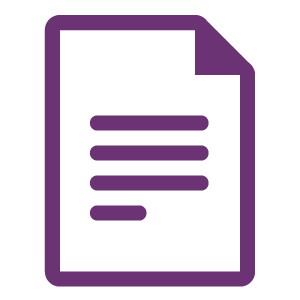What is an income and expenditure form?
An income and expenditure form is also called a common or standard financial statement. It lists all your monthly income, spending and debts.
It is used to understand your financial situation and show what you can afford to pay.
 Use our income and expenditure form budget template
Use our income and expenditure form budget template
Our income and expenditure budget template may help you decide what to include in your expenses.
It is also available as a PDF download (not suitable for screenreaders).
What is a common financial statement?
A common financial statement is the same as an income and expenditure form or standard financial statement.
It is used by financial institutions to separate different types of income, track spending and understand what is 'normal' for different households.
This is the first step of debt advice. It is shared with creditors to explain what you can afford.
What should be included?
Some expenses are more important than others. These are the sections in a typical I&E form:
1. Your income
This shows what money you receive on a regular basis. This includes:
- Income from employment or self employment
- Working / Child Tax Credit
- Universal Credit
- Jobseeker's Allowance
- Income Support
- Housing Benefit
- Any pension payments you receive
- Rent or board income
- Housekeeping money
- Child maintenance
Including all your income means creditors get an accurate picture of your situation.
2. Your priority bill
Household bills are your most important expenses. Missing payments on priority bills can have severe consequences.
For example, not paying your mortgage could lead to repossession proceedings.
Priority bills include:
3. Your other spending
These expenses are important but not as urgent as priority bills.
For example, you may need to pay for breaking contract if you cancel your TV package, but you will not lose your house (like if you don’t pay your mortgage).
Other spending includes:
- Car insurance, tax, or breakdown cover
- Digital television or streaming services
- Buildings and contents insurance
- Life insurance or pension
- Telephone and internet
- Public transport
- Repairs and maintenance costs (such as heating cover or boiler insurance)
- Medical or accident insurance
- Household appliances that you rent
- Educational fees
- Church or charity donations
- Union or professional fees
- Laundry or dry cleaning costs
- Smoking costs
- Loans from family or friends
4. Living costs
This is day to day spending. Use recent shopping receipts or bank statements to work out an average for typical living costs.
These include:
- Food costs
- Clothing and footwear
- Toiletries
- Hairdressing
- Dentists
- Opticians
- Sundries and emergencies
- Medicines or prescriptions
- Sports, hobbies and entertainment
- Newspapers or magazines
- School activities and pocket money
- Savings
- Petrol and parking costs
Your creditor may ask for more information if they feel your living costs are high.
5. Your non-priority debts
List all the debts you owe. Include the payment you can make towards them.
What you offer your creditors is based on how much is left after you have covered your priority household bills, other expenses, and living costs.
Priority debts are ones that can impact your home, health and safety. Read more about them here.
Non-priority debts include:
- Unsecured loans
- Credit cards
- Overdrafts
- Store cards
- Payday loans
- Catalogue repayments
- Doorstep loans, from lenders such as Provident
- Cancelled contracts (such as gym memberships, mobiles phones and satellite TV)
- Arrears from old energy providers
- Arrears from old rental contracts
Non-priority debts become priority debts if the creditor is granted a County Court judgment (CCJ) against you. (A decree in Scotland. A money judgment in Northern Ireland.)
6. Offer of payment
Some I&E forms ask you what you think you can afford to pay towards your debt.
Go through your figures and work out what you can realistically offer.
Even if the offer is small, write it down anyway.